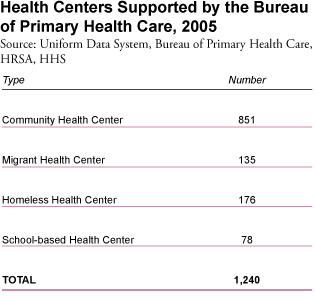HRSA Programs Related to Women’s Health
The U.S. Department of Health and Human Services, Health Resources and Services Administration (HRSA) supports several programs that promote access to health care for vulnerable populations. HRSA’s Office of Women’s Health (OWH) coordinates efforts that address women’s health across their lifespan. The Bright Futures for Women’s Health and Wellness Initiative provides materials on topics such as physical activity and healthy eating, emotional wellness, and maternal wellness. These tools, data books, and research reports can be found on the OWH Web site.
The HRSA Web site provides information about HRSA’s bureaus and offices. HRSA’s Maternal and Child Health Bureau (MCHB) administers the MCH Block Grant, a Federal- State partnership to improve the health of mothers and children. Depression During and After Pregnancy: A Resource for Women, Their Partners, Family and Friends (2007) and The Business Case for Breastfeeding: Steps for Creating a Breastfeeding-Friendly Worksite are two new HRSA publications available for consumers.
The Bureau of Health Professions (BHPr) provides national leadership in the development, distribution, and retention of a culturally competent health workforce. In 2006, women represented 62 percent of those who received assistance from the Centers of Excellence and 71 percent of those involved with the Health Careers Opportunity Programs.
The HIV/AIDS Bureau (HAB) addresses the needs of women living with HIV/AIDS through the Ryan White Program including Part D, which targets services to women, infants, children, youth, and their families. HAB aims to improve access and retention in care through training and technical assistance programs, culturally competent border health initiatives, oral health care programs, and Special Projects of National Significance.
The new Bureau of Clinician Recruitment and Services’ (BCRS) mission is to improve the health of the Nation’s underserved communities by coordinating recruitment and retention of health professionals to build integrated and sustainable systems of care. Clinicians participating in the National Health Service Corps program provide staffing support to Federally Qualified Health Centers.
The Bureau of Primary Health Care (BPHC) manages the Health Center Program, which funds a national network of 1,002 grantees at over 3,800 comprehensive, primary health care service delivery sites. Through community health centers, school-based centers, and other centers focused on migrant health, health care for the homeless, and public housing, the Program delivers preventive and primary care services to patients regardless of their ability to pay. Almost 40 percent of patients have no insurance coverage. Overall, the number of patients served has risen from 10.3 million in 2001 to an estimated 15 million in 2006. In 2006, 59 percent of patients served were women.

